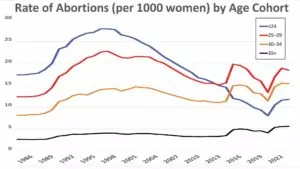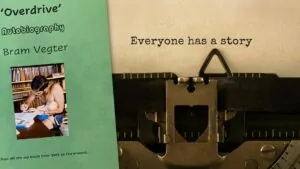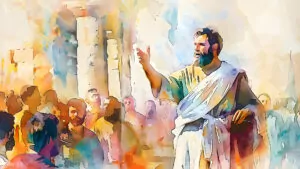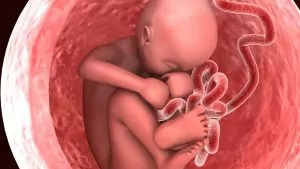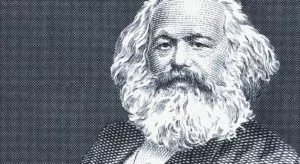Karl Marx: preaching a different gospel
To mark the 100th anniversary this month, of the Communist Revolution in Russia, we're sharing Piet Jongeling's brief biography of Karl Marx, first published 34 years ago.
****
Karl Marx was both an economist and a politician, but in fact he was much more than that. He was the founder of a new atheistic political religion, the prophet of a new world-to-come in which righteousness would dwell. Man in his own strength would bring this about. Marx proclaimed the coming of a new messiah, the proletariat, which through suffering and struggling would eventually bring salvation to the world.
His message has had great influence, not only before his death, but especially after it. At present one third of the world's population lives under a political and economical system that can be called "Marxist" . This indication as "Marxist" is valid, even though there may be many differences between Marx's theoretical concepts and the practical application which the communist countries have made of them.
Life story
Karl Marx was born on May 2, 1818, at Trier, Germany. He descended from a long lineage of rabbis. His father was the first to break with that tradition. Instead of becoming a rabbi, he studied law and he broke with the Jewish religion. His mother was Dutch.
When young Karl was six years old, he was baptized together with the other members of the family. That baptism, being a social affair, had little religious significance. It served only as evidence that the Marx family belonged to those modern Jews who favored assimilation and who desired to eradicate their cultural and religious heritage. Baptism functioned as a ticket of admission to European civilization. That could — as it did in this case — coexist with atheism in practical life.
Marx Junior was uncommonly intelligent. He studied law and the history of philosophy in Bonn and in Berlin, and he received his Ph.D. degree in 1841 at Jena. After he was awarded his doctorate, Karl Marx became a journalist.
Soon it became apparent that he espoused some very radical social and economic ideals. His paper, accused of inciting rebellion, was closed up.
Karl Marx married a woman from an outstanding German family. Shortly after his wedding he fled to Paris. There he studied the history of the French Revolution. He got to know the French laborers in their often bitter poverty and in their just as bitter revolutionary zeal. Sometimes he lived in poverty himself, so as to gain deeper insight into, and firsthand experience in, the painful inequality and the depth of the social injustice of those days.
When France also expelled him a few times, he fled back to one of the German states (the federal German state was not in existence yet). In 1849 he departed for London, where he remained living and working until his death in 1883.
Turn socialism into a system
Marx perceived very clearly that the society of his days was distinctively a class society, in which the working class was badly abused. He even invented a new name for this class: "the proletariat," people who have no possessions except their "proles" – that is, their children. It was Marx's intention to come to the aid of this oppressed bottom layer of society.
He believed that socialism was the solution. But the socialism of his days was more of a golden pipe dream of the future than a usable doctrine and practice based on a principled structure. The road towards the ideal state had not been charted in a system that was methodically and logically acceptable.
This bothered the intellectual in Marx. Rejecting this socialist romanticism as "Utopian Socialism," he developed a well-thought-out system himself in which he delivered the "proof" that the prevailing economic system, which he gave the name "Capitalism," was itself instrumental in unleashing the powers that would inevitably bring about the downfall of Capitalism and the victory of a new and superior system: Communism.
The Communist Manifesto and Das Capital
In 1847 Karl Marx and his German friend and spiritual brother, Friedrich Engels, drafted the Communist Manifesto. Published in 1848, it contained three main points:
1. Communism is a historically determined direction of society, a development which will unstoppably continue and whose eventual victory cannot be held back by anything.
2. The road toward that victory is marked by the class struggle, which, after an ocean of misery, shall lead to the great showdown. Capital and the means of production will accumulate in the hands of ever fewer owners. The proletariat shall encompass ever greater numbers, suffer more and more poverty, and so be better prepared and determined for the great battle. Eventually the proletariat will rob the last of the supercapitalists of their possessions. After the great expropriation for the benefit of all, the conflicts between the classes will disappear.
3. The proletariat must be well-organized in national and international societies, accept proper leadership, discipline, and order, and be able to act as one man.
The Communist Manifesto thereby condemns the revolutionary movement of the anarchists which had a much greater individualistic character and would not accept a strict organization, a systematic approach to the problems, or subjection to a leadership.
The Communist Manifesto was probably written mainly by Friedrich Engels, the son of a rich merchant and manufacturer. Marx and Engels were both gifted students of Hegel, the German philosopher. The two worked together for many years, and during this partnership, Karl Marx became more and more prominent.
When the year 1848 did not bring the expected and hoped for breakthrough of Communism, Marx went back to elaborate on the thoughts developed in the Communist Manifesto. He attempted to place the Manifesto on a scientific footing in his trilogy Das Capital. The first volume came out in 1867. The second and third volumes were published after his death by Engels, in 1885 and 1894.
Communism in theory and practice
Now, this column is not the place for a detailed analysis of the Marxist political dogmas so a few broad outlines will have to suffice.
Karl Marx has attempted to construct his study in a scientific manner and to base his conclusions on irrefutable evidence. This impressed a great number of people. The evidence that the communist victory was inevitable was backed up by a mathematical formula! Nothing and nobody could avert that triumph.
Later thinkers have undermined this foundation of scientific irrefutability. They pointed at errors in the line of theoretic reasoning. But history has done greater damage to the system than the critics. Many of Karl Marx's predictions never came true.
1. The Soviet Union has had sixty-five years of experience with its "new" system. But although Karl Marx predicted that after a short transition period the state would wither away, the reality was that anywhere Communism took power, the state became stronger, harder, mightier, and more brutal: an all-oppressive dictatorship! Communism is nothing short of state Capitalism!
2. During this transition period, mentioned above, the dictatorship of the proletariat would have to be established to do its task of destroying the capitalist structures, until, after the last remnants of Capitalism had been eradicated, it itself would disappear. But in reality it was a dictatorship not of the proletariat but over the proletariat. And that dictatorship did not disappear. It is bent on self perpetuation.
3. Also in the countries where free enterprise prevailed (called Capitalism by Marx), things went clearly different from what Mr. Marx had predicted. In the previous century, during Marx's lifetime, there were admittedly very serious dark sides to the free enterprise system. However, social laws, social actions, and mutual consultation have brought about great improvements. That does not mean that the world has become a paradise. Sin keeps doing its work. There is much social injustice even now; violations are committed by employers and employees alike. But looking back at the past we must admit: the improvements are enormous. The material welfare of those whom Marx called "the laboring classes" is much greater than in the previous century. The "proletarians" are no longer the dispossessed. The wealth of the working people in the capitalistic West is considerably greater than is the case in the communistic East. And, more importantly, the Western people enjoy a relative freedom, while the Communist system of servitude takes away spiritual freedom, oppresses the church and church members, and places callous atheism high on the throne.
A different gospel
What the Red Revolution delivered was the opposite of what it promised. It is terror instead of freedom, serfdom under masters instead of equality, brutal force instead of brotherhood, and above all, the dread of the secret police.
How could Karl Marx's doctrine then be so successful? It must be admitted that Marxism achieved great victories. One third of the world's population today lives under a political and social-economic system that is named after Marx.
The reason is that Marx came to the world with a new gospel! It was the doctrine of self-redemption which he dressed in the shining apparel of scientific certainty. Marx, the man of Jewish descent, may have broken with the religion of Israel, but he was very well versed in it. His rich and impressive writing style betrayed the influence of the Old Testament. In his writings he has the grand manners of the prophet who proclaims to the people the glad tidings of forthcoming deliverance.
The Jews had refused to apply Isaiah's prophecy of the suffering servant of God to Jesus Christ, the Savior. The rabbis applied this prophecy to the suffering people of Israel itself, so that its nation, through suffering, would gain deliverance for itself and so also for the world that surrounded its people. Israel was its own messiah!
Marx adopted this model in a secularized format. For him the messiah is the proletariat. Through struggles and sufferings the proletariat shall redeem itself and the world and so bring into the world the eternal "peaceable kingdom."
This alternate gospel with its false-religious message, with its inversion of Christendom, has cast its spell on many millions of people. It was not an unstoppable historic determinism that brought the victory to Communism. It was not an automatic, inevitable course of world events that led to the Red welfare state. Wherever Communism gained control it was always a power grab by a minority which used the confusion of wartime or national unrest to its own advantage. And once in power, it could only stay that way by keeping its weapons trained on the oppressed people. Poland, Czechoslovakia, Hungary, East Germany — there are many examples to illustrate this fact.
Marx's style of writing is eschatological. He prophecies of a new earth, created and cleansed by man. From that time on, the history of mankind will find rest, because the final destination, the eternal wellbeing of mankind, has been reached. It was that prophetic zeal that attracted so many.
Conclusion
But how different was the reality! Sixty-five years have passed since the Red Revolution, and still the shining final destiny is far out of reach. This image of the glorious future is a fata morgana – an illusory reflection that recedes as one approaches it and finally dissolves into thin air.
According to eyewitnesses, one finds very few genuinely committed communists in the East Bloc countries — percentage-wise, certainly far less than in the Western nations. There is little more than an outward conformation to save one's hide. Open protests will only pave the way to concentration camps, prisons, or, more recently, psychiatric institutions.
The Red Bloc, with the Soviet Union as its core, has grown into a superpower, which, armed to the teeth, has become a constant threat to world peace. It is to be hoped that those people who are still free may find the fortitude to oppose that threat. The continuing de-Christianization has robbed the Western nations of their spiritual strength in the face of Marxism, or, at least, has seriously impaired it.
If Marx could witness the reality of today, he would very likely be appalled by the manner in which his prophecies of the glorious future have been fulfilled in the drab present. But the negative forces which he has helped to unleash are continuing to have their impact, even now, a hundred years after his death.
Piet Jongeling (1909-1985) was a politician, journalist, and children's fiction author, and it is in this latter role that he might be best known to our readership, though under his pen name, Piet Prins. This article first appeared in the May 1983 edition....





















